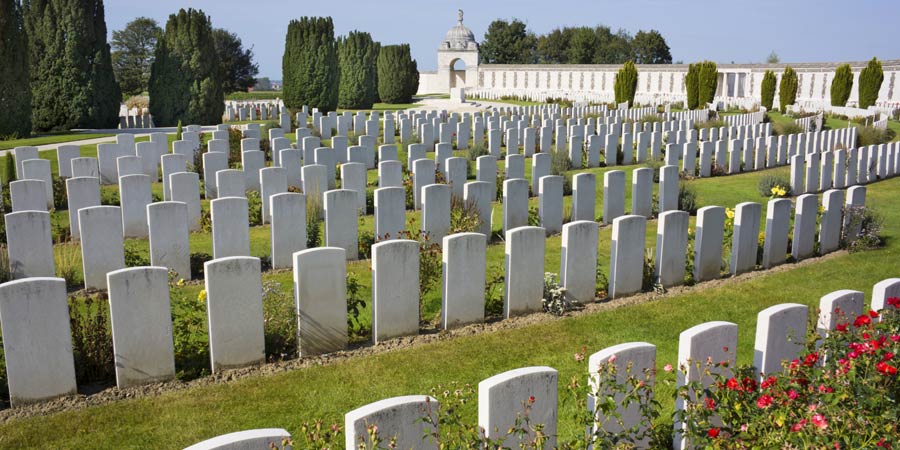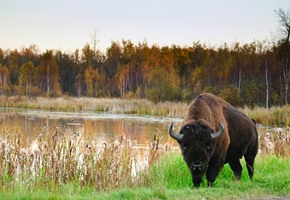On the centenary of its outbreak, the battlefields and cemeteries of World War I are a fitting pilgrimage for those who wish to learn or just remember.
The British Prime Minister, Stanley Baldwin, once said: "War would end if the dead could return". Of course, this can never be, but for those who visit the scenes and poignant memorials of the greatest war the world has ever known, the idea of another such conflict becomes unthinkable. If history teaches us anything, it is to look at and hopefully not repeat the follies of past generations.
For many who take a Great Rail Journeys Battlefield Tour there is a personal association. Some will have lost relatives who they never knew but want to honour, shed a tear over and create tangible memories of the places where they fell and now lie, out of respect for the ultimate sacrifice that they gave. For others it will be an opportunity to see, first-hand, the terrain where some of the bloodiest fighting of the war happened and to gain a deeper understanding of what the soldiers experienced on a day-to-day basis, their privations and hardships, and what drove them to make the ultimate sacrifice. One thing is sure, though - few who visit these memorials remain unmoved or return home without deep feelings of, perhaps, sorrow, pride and hope.
One hundred years ago, the 'war to end all wars' began and so, to commemorate this cataclysmic event which would change the world forever, we have a range of tours that give a unique insight into many aspects of the conflict. Always conscious that the places visited are the historical locations of fierce fighting and human loss that may have a personal meaning for many people, they allow time to pause and reflect before continuing.
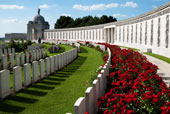
Northern France and Belgium are easily and quickly reached by rail and there are many museums and preserved battlefield sites which provide a unique experience and insight into the conflict. Tours may include a visit to the Tyne Cot Cemetery, the largest Allied cemetery, and the Bayernwald trenches, which are a section of the German trenches that have been wonderfully preserved and give an accurate impression of what trench life would have been like. At Poperinge, the most important town behind the lines, you could visit Talbot House, known as "Toc H", which was somewhere for soldiers to use as a retreat away from the fighting - an "everyman's club" - where rank had no relevance.
Behind the front line of fighting is Essex Farm Cemetery, where Colonel John McCrae wrote "In Flanders Fields" - one of the most famous poems from the First World War.
"In Flanders Fields" Museum
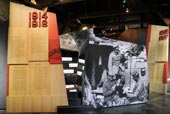
The "In Flanders Fields" Museum is located in the Cloth Hall in Ypres, within easy walking distance of our hotel. It underwent two years of refurbishment from 2010 to 2012 and now includes a brand new permanent exhibition which tells the story of the invasion of Belgium, the first months of the Allied mobilisation and the four years of trench warfare in the region. It also covers the end of the war and the permanent remembrance ever since. Hundreds of authentic objects and images are presented in an innovative experience-orientated layout. Lifelike characters and interactive installations allow the contemporary visitor to directly relate to those who took part in the conflict.
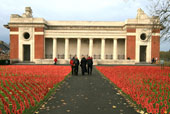
The tours to the battlefields of the Somme may include a visit to the Thiepval Visitor Centre, which focuses on the events during the actual Battle of the Somme - one of the biggest battles of the entire war, which lasted 141 days and, with over 1,000,000 men killed or wounded, was the bloodiest battle in human conflict. Some tours continue to the village of Beaumont-Hamel, location of one of the largest memorial parks in the area, and a poignant place to stand and reflect.
As part of our range of tours, on this historic occasion we are offering the opportunity to commemorate Armistice Day in Ypres itself. You may visit the battlefields of Flanders, where so much of the heavy and destructive fighting took place, and the battlefields of the Somme including the Museum of the Great War in Péronne, housed within the town's old fortress. Here is the opportunity to experience the life of soldiers in front line trenches and how the forces lived behind the lines. On Armistice Day itself, you could watch the unforgettable veterans' Poppy Parade, where former servicemen march through the streets of Ypres to the famous Menin Gate, accompanied by the music of the marching bands.

